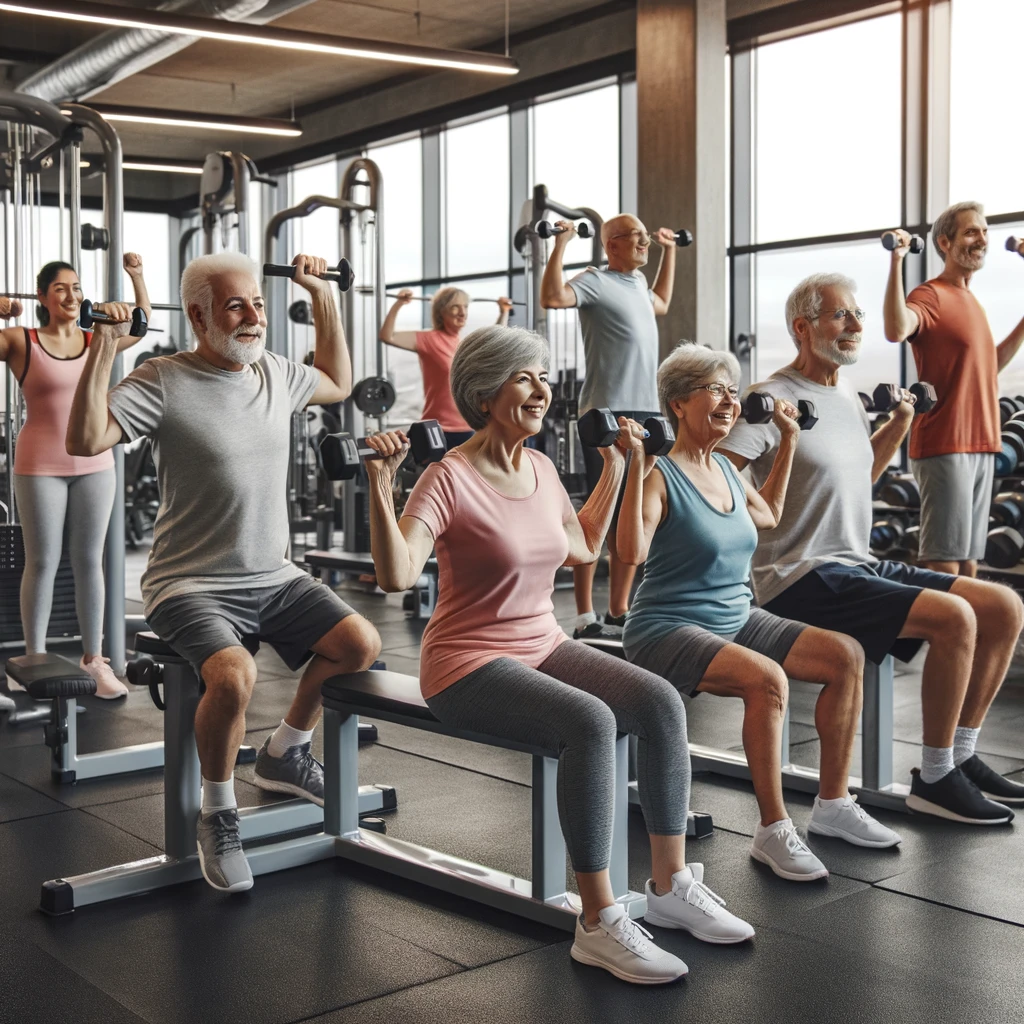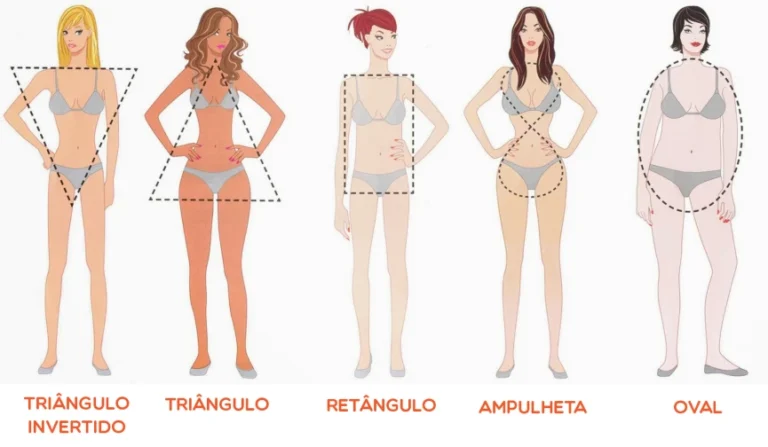How Bodybuilding Combats Depression in the Elderly
When we talk about aging, we often only focus on the physical changes, but what about the invisible battles?
A depression in the elderly is one of those silent but significant challenges affecting quality of life, emotional well-being and even physical health.
However, there is a light at the end of the tunnel, an activity that has shown promising results in improving the mood of our beloved elderly people: weight training.
Yes, you heard right! Although it may seem surprising, lifting weights and strengthening your muscles can do more than just improve physical strength; can be a powerful tool in the fight against depression in the elderly.
Let's dive together on this journey of discovery, where we explore how muscle strengthening transcends the physical to touch the heart and soul.
Browse the content

The Benefits of Bodybuilding for the Elderly
Bodybuilding, often associated with youth and vigor, is surprisingly one of the most beneficial activities for older people, including those struggling with depression.
Let's demystify how the act of lifting weights and strengthening the body can transcend the physical, promoting robust mental health and combating depression in the elderly.
Physical Strengthening and Autonomy
Firstly, it is essential to recognize the direct impact of weight training on the physical health of the elderly. Increasing muscular strength and endurance contributes significantly to improving mobility, balance and flexibility.
These physical benefits translate into greater autonomy and the ability to perform everyday activities, which can be deeply empowering for older adults, providing them with a renewed sense of independence and control over their lives.
Psychological Effects: Self-Esteem and Well-Being
In addition to the physical benefits, weight training has a powerful effect on the mind.
Regular practice of this activity stimulates the production of endorphins, the happiness hormones, promoting a natural feeling of well-being and combating the feeling of sadness and melancholy often associated with depression in the elderly.
Furthermore, improvements in physical appearance and functional capacity can increase self-esteem, contributing to a more positive mental state.
Studies and Research Support the Benefits
Various research and scientific studies have highlighted the positive relationship between weight training and improved mental health in the elderly.
A study published in the “Journal of Gerontology” highlighted that elderly people who participated in strength training programs showed significant reductions in symptoms of depression, in addition to improvements in overall quality of life.
A Virtuous Cycle
Strength training promotes not only a stronger body, but also a more resilient spirit. By participating in group activities or establishing training routines with friends or family, seniors can experience an improvement in their social circle, combating isolation and strengthening community ties.
This social aspect of bodybuilding is fundamental, as it offers additional emotional support, which is crucial in the fight against depression.
Through this section, we highlight how weight training can be an effective and multifaceted strategy in combating depression in the elderly, bringing benefits that go beyond the physical, positively affecting mental and emotional health.
By promoting autonomy, well-being and self-esteem, this practice proves to be an important pillar in the treatment and prevention of depression in the elderly.
Bodybuilding as a Tool to Combat Depression in the Elderly
The role of strength training in improving the mental health of older adults is both promising and underappreciated. By adopting this practice regularly, seniors not only work their body but also strengthen their mind, creating a stronger shield against depression.
Relationship Between Physical Activity and Mental Health
The connection between physical activity and mental health is well documented. Regular weight training, in particular, can act as a complementary therapy in the treatment of depression in the elderly.
Physical exercise not only stimulates the release of endorphins, but also contributes to the regulation of other important neurotransmitters, such as serotonin and dopamine, which play crucial roles in mood and feelings of well-being.
Testimonials and Success Stories
Real stories of elderly people who have incorporated weight training into their lives are powerful testimonies of the positive impact of this activity. Many report not only a significant improvement in their physical capacity and reduction in symptoms of depression, but also a transformation in their perception of themselves and their place in the world. These narratives are a source of inspiration and a reminder that it's never too late to make positive changes in our lives.
Tips for Starting Practice Safely and Effectively
For seniors interested in starting bodybuilding, some advice is essential to ensure a safe and rewarding experience:
1. Consult a healthcare professional before starting: It is crucial to get medical approval, especially if there are pre-existing health conditions.
2. Seek professional guidance: Working with a personal trainer who specializes in strength training for seniors can ensure that exercises are performed correctly and safely.
3. Start slowly and progress gradually: The focus should be on building strength and endurance in a sustainable way while avoiding injuries.
4. Incorporate socialization: Participating in workout groups can not only motivate, but also offer valuable emotional and social support.
Implementing Bodybuilding in the Routine of the Elderly
Integrating strength training into seniors' lives may seem challenging initially, but with proper planning and support, it can become a valuable and rewarding part of your daily routine.
How to begin
The key to incorporating weight training into seniors' lives is to start with small, achievable steps. Identifying a program or training location that is welcoming and accessible is essential.
Additionally, setting realistic goals can help you stay focused and motivated.
Necessary Adaptations
Each individual is unique, and this is no different when we talk about bodybuilding for the elderly. Adaptations in exercise, intensity, and frequency may be necessary to accommodate different skill levels and health conditions.
Personalizing training is crucial to maximizing benefits and minimizing risks.
The Importance of Professional Support
Monitoring by professionals specialized in strength training for the elderly is essential. They can provide valuable guidance, adjust training programs as needed, and offer emotional support, ensuring a safe and effective experience.
Nutrition and Combating Depression in the Elderly: Foods that Strengthen Body and Mind
Nutrition plays a fundamental role in everyone's health, especially in the elderly who face unique challenges, including depression and the need to maintain muscle strength for weight training.
A balanced diet, rich in certain nutrients, can help alleviate the symptoms of depression in the elderly, as well as providing the energy and materials needed for muscle recovery and strengthening.
Omega-3 Fatty Acids: Fuel for the Brain
Omega-3 fatty acids are vital for brain function and have been linked to reducing symptoms of depression in older adults. Additionally, they play a role in reducing inflammation, which can be beneficial for recovery after weight training sessions. Sources of omega-3s include fatty fish like salmon, as well as chia seeds and walnuts.
Proteins: The Basis of Muscle Strength
For older people who practice weight training, consuming an adequate amount of protein is essential for muscle repair and growth. Additionally, proteins contain amino acids that can positively influence mood and help fight depression in the elderly. Good sources of protein include lean meats, dairy products, eggs and legumes.
Vitamin D: Sunlight and Food
Vitamin D, obtained both from sun exposure and through diet, is crucial for bone and muscle health, as well as being linked to reducing symptoms of depression in the elderly. Dietary sources include fatty fish, egg yolks and fortified foods.
Antioxidants: Protection against Oxidative Stress
Foods rich in antioxidants, such as berries, green leafy vegetables, and nuts, can combat oxidative stress, contributing to overall health and helping to improve symptoms of depression in older adults. These foods are also important for those who practice bodybuilding, as they help with muscle recovery and reduce inflammation.
Hydration: Fundamental for Well-Being
Staying adequately hydrated is essential for physical and mental health. Water not only helps with the digestion and absorption of important nutrients for combating depression in the elderly and for bodybuilding, but also in the proper functioning of the brain and maintaining a good mood.
Conclusion
Bodybuilding is a powerful tool in combating depression in the elderly, promoting benefits that go beyond the physical and profoundly affect mental and emotional well-being. Encouraging older people to explore this practice, with due care and under professional guidance, can open doors to a significantly improved quality of life, marked by more strength, autonomy, and joy.
Lifting weights can, in fact, help lift spirits, combating depression in the elderly and bringing light to a phase of life that can be as rewarding as any other.






